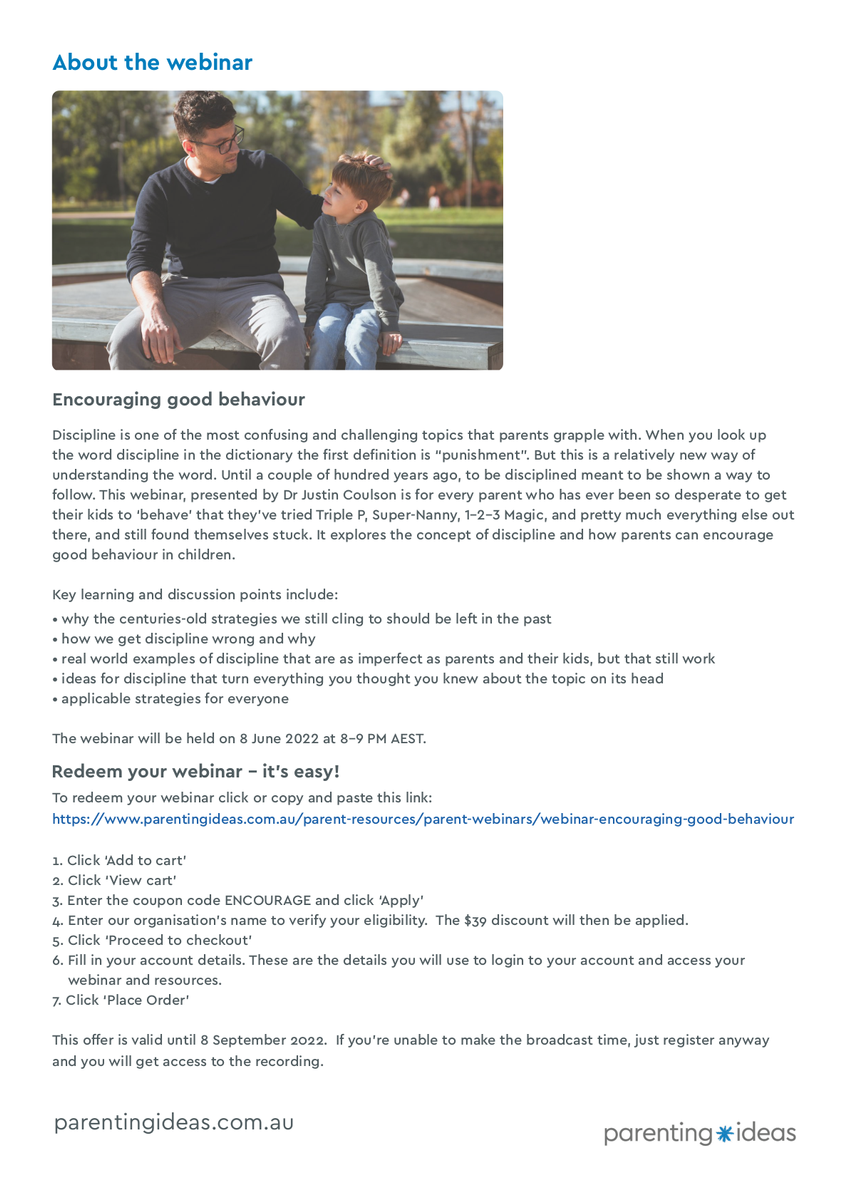Principal

Hitting the Ground Running…..
The students made a flying start to school this week and across Years 5 to 12, the relaxation of the household contact rules meant that we only had three COVID-positive students away from school in the first week.
Frequent absences were, regrettably, a feature of first term but we are now in the clear!
Term 2 is a short and sharp term. It is only nine weeks long so it means boys need to really be focused on their work in class, their homework tasks and handing in the best assessments they can. There is lots of help available! They can ask their class teacher. Or they can turn up to Homework Club any afternoon and seek the advice of a teacher.
One of the most frequently asked questions I receive is how do I motivate my teenage son? They won't help me around the house, and they consistently wait until the last minute to do their homework. As busy working parents, and even single parents, they usually don't have the energy to make them get down to work. Is there a way to break this negative pattern?
You may think this sounds like a simplistic answer, but there’s really no way around it: the best thing you can do for your teen is to establish clear house rules on chores and homework, and then follow through. You’ll need to be consistent and firm, even when you’re tired or frustrated. If you’re not, you’re basically teaching your kids that it’s okay to be selfish and irresponsible.
Unless you make some major changes in your parenting style now, your children are going to have a difficult future ahead of them. In just a few short years they’ll be out of the house and living in the “real world.” If you haven’t taught them personal responsibility and self-discipline, how are they going to succeed in college or hold down a job?
How can you do this? One practical method involves something that psychologists call Premack’s Principle (a principle of operant conditioning originally identified by David Premack in 1965). Premack’s Principle states that preferred behaviours can be used to reinforce unpreferred behaviours. In application, it means that a less desirable activity needs to be completed before a person engages in a more desirable activity – as in “You have to finish your vegetables (unpreferred) before you can eat any ice cream (preferred).”
Here’s how you might apply this principle with your teens. As their parent/carer, you probably know what their favourite activities are. Hold a family meeting with them, perhaps after dinner when everyone is in a good mood. Tell them how much you love them. Then explain that, as their parent/carer, you are responsible to prepare them to be successful in life. Admit that you haven’t been doing a very good job of that lately and make it clear that you’re going to try to rectify that by establishing some new household rules. One of those rules will be that all homework and chores must be done immediately after school, before your kids are allowed to engage in “fun” activities, such as talking on the phone, chatting online, watching TV, listening to music, or going out with friends.
You can also build in some extra incentives using a point system. Each time your teens complete a chore to your satisfaction or receive a good mark on their homework, they earn points. These points can be cashed in for privileges or enjoyable activities like going to a family-friendly movie on the weekend or a trip to the local shopping centre.
Remember that it’s not enough to set up these rules and establish this point system. Everything depends on your willingness to follow through. Stick with it even when you don’t feel like being tough. And don’t allow yourself to get sucked into arguments about the finer points of the new standards. To avoid this, we’d suggest that you put everything in writing. Draw up a contract that clearly spells out both the rules and the rewards. Each of you should sign your names to the contract and post it on the refrigerator. If you stick to the plan faithfully for a few weeks, you should start to see some positive changes in your teenager’s behaviour.
How can I get my son to complete his homework and assessments?
A major part of getting your child to do their homework lies in establishing a system so that your child comes to see that homework is just a regular part of home life. Once they accept that, you’ve already won half the battle. Accordingly, my first few tips are around setting up this system. If you get the system right, things tend to fall into place.
Put this system in place with your child at a time when things are calm and going well rather than during the heat of an argument. Tell your child that you’re going to try something different starting next week with homework that will make it go better for everyone. Then explain the system.
You’ll find that this system will make your life easier as a parent/carer, will make you more effective as a parent/carer, and will help your child to get the work done. And when your child gets their work done, they’re more likely to succeed, and nothing drives motivation more than success.
Structure the Evening for Homework
When your kids come home, there should be a structure and a schedule set up each night. I recommend that you write this up and post it on the refrigerator or in some central location in the house. Kids need to know that there is a time to eat, a time to do homework, and also that there is free time. And remember, free time starts after homework is done.
Homework time should be a quiet time in your whole house. Siblings shouldn’t be in the next room watching TV or playing video games. The whole idea is to eliminate distractions. The message to your child is, “You’re not going to do anything anyway, so you might as well do your homework.”
Even if your child doesn’t have homework some nights, homework time should still mean no phone and no electronics. Instead, your child can read a book or a magazine in their room or work on longer-term assignments. Consistently adhering to the homework time structure is important to instil the homework habit.
Use a Public Place for Homework
For a lot of kids, sending them to their rooms to do their homework is a mistake. Many children need your presence to stay focused and disciplined. And they need to be away from the stuff in their rooms that can distract them.
You know your child best. If you think they’re not being productive in their room, then insist they work at the kitchen table or in some other room where you can monitor them and where there will be fewer distractions.
Give Breaks During Homework Time
Many kids get tired halfway through homework time, and that’s when they start acting up. If your child is doing an hour of homework, have them take a five-minute break every half-hour so that they can get up, have a snack, and stretch their legs. But don’t allow electronics during the break—electronics are just too distracting.
Monitor the break and ensure that your child gets back to work promptly.
Be sure to encourage your child when they’re discouraged. It’s okay to say things like:
“I know it’s a drag but think of this—when you get your work done, the rest of the night is yours.” Or: “Look, if you do your work all week, you’ll have the whole weekend to do what you want.”
Show your child empathy—how many of us truly enjoyed homework every night? It’s work, pure and simple. But your child will be encouraged when they begin to have success with their work.
Help Your Child Get Started With Their Homework
Some kids have a hard time getting assignments started. They may be overwhelmed or unsure where to begin. Or the work may seem too difficult.
There’s a concept called hurdle help. If you have a child who has a hard time getting started, spend the first five minutes with them to get them over the first couple of hurdles. Perhaps help them with the first mathematics problem or make sure they understand the assignment.
For many kids who are slow starters, hurdle help is very effective. This doesn’t mean you are doing their homework for them—this is simply extra help designed to get them going on their own.
Help Your Child Manage Long-Term Assignments
If your child has a big, long-term project, then you want to work with them to estimate how much time it’s going to take. Then your child has to work within that time frame. So, if your child has a science project, help them manage and structure their time. For instance, if the project is due in 30 days, ask them:
“How much time are you going to spend on it each night?” They might say, “15 minutes a night,” and you hold them to that.
Don’t assume that your child knows how to manage their time effectively. As adults, we sometimes take for granted the habits we have spent a lifetime developing and forget that our kids are not there yet.
Make Sunday Night a School Night
The way that I structured the weekend is that Sunday night was a school night, not Friday. So, if your child has homework for the weekend, and as long as they’ve done all their work for the past week, they get Friday and Saturday night off and can do their homework on Sunday night.
If there’s a project or something big to do over the weekend, then work with your child to budget their time. They may have to put some time in on Saturday or Sunday during the day. But other than that, your child should have the weekend off too, just like adults do.
The Weekend Doesn’t Begin Until Overdue Work Is Done
If your child has overdue homework, their weekend shouldn’t begin until those assignments are done. In other words, Friday night is a homework night if their week’s work is not complete.
Believe me, this is a highly effective consequence for kids because it creates a great incentive to get their work done. Indeed, each minute they’re doing homework is a minute they could be hanging out with friends or playing video games.
If you can hold them to this rule once and deal with the complaining, then next week the homework will be done.
Dealing with Anxiety
The last two, unsettled years have had an impact on many young people. The anxiety of returning to school, dealing with friends in real time, having homework pressure, can tip many students over the edge.
You are not alone in finding that your son as changed. If you’ve noticed changes in your son’s moods, emotions or behaviour that are worrying you then we need to get him some help. What next? Well, the best thing you can do for your child’s wellbeing is to speak to a health professional about what’s going on.
Taking the first step
Your local GP is often a good starting point when your child needs help. Depending on the situation, the GP might provide ongoing care or suggest that another mental health professional or support service get involved.
Mental health professionals who specialise in working with children can be accessed through your GP, community health centre, public mental health services, and private health clinics. We have three full-time counsellors who can help.
What happens next?
Your GP or other health professional will need to get an accurate picture of what’s going on so they can provide tailored treatment for your child’s needs. This is done through a mental health assessment.
As part of this assessment, the health professional will look at your son’s difficulties, background and current needs. They’re likely to ask questions about your son’s early history, progress and difficulties at school, and your family situation. The discussion might cover:
- the situations your son finds difficult
- how they get on with other children and family members
- whether they have any learning difficulties
- how your son and family have tried to manage difficult or stressful situations up until now
- their strengths and interests.
You may also be asked to keep a record of your son’s behaviour – usually for a week or two, or until your next appointment.
Based on all of this information, the health professional will decide what kind of support will be most appropriate for your child and family. There is help out there! A good place to start is this website Home (beyondblue.org.au).
Communication
I have written previously about the benefits and drawbacks of the parent WhatsApp groups that parents/carers participate in.
Unfortunately, it has come to my attention that there has been some negative feedback in some of the groups relating to a perceived lack of communication between home and school regarding sports training and fixtures. Regrettably, upon investigation with our Newsletter Analytics software, it becomes very clear that the very parents/carers complaining about a lack of communication do not open or read the Especean each week.
Until our new SPC app is rolled out, the Especean is the main form of communication with our community. Sports draws are up to date in that publication.
If there are weather-affected training events or fixtures, we then use Team App to communicate efficiently and quickly.
In Memoriam
We keep in our prayers Habib Ghosn (Year 10), Antoine Ghosn (Year 8) and Jude Ghosn (Year 7) on the recent loss of their grandfather, Mr Habib Ghosn.
Eternal rest grant onto him O Lord and let perpetual light shine upon him.
May he rest in peace.
Amen.
Dr Vittoria Lavorato
Principal
SPC boys can do anything!
**except divide by zero


